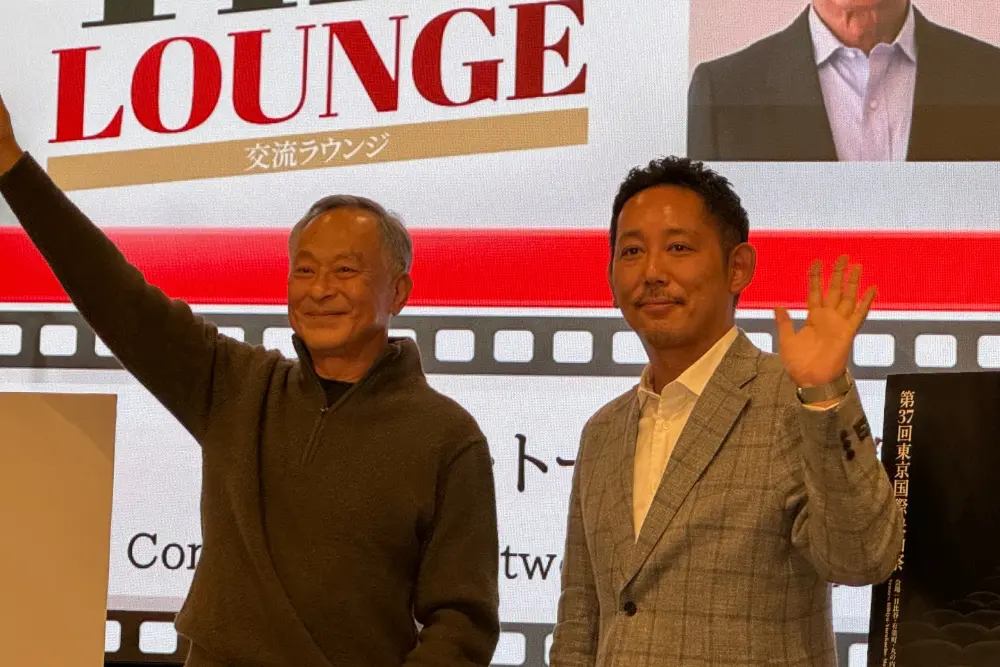Johnnie To on navigating Hong Kong’s tight filmmaking controls
A director’s perspective on balancing culture and freedom
At the Tokyo International Film Festival (TIFF), veteran director Johnnie To engaged in an insightful conversation with Japanese filmmaker Yu Irie, shedding light on the intricate challenges faced by filmmakers in Hong Kong under increasing regulation. “There is a lot of regulation in Hong Kong, especially when it comes to expression,” To remarked. Highlighting the delicate balance between culture and freedom, he emphasized, “You have to think about what you are going to say carefully. It’s about responsibility.”
Fresh Wave film festival’s journey through censorship
To’s influence in nurturing young talent is well-documented through his establishment of the Fresh Wave film festival in Hong Kong. This initiative has been pivotal in discovering new talents. However, 2023 saw the festival grappling with censorship. “With the Fresh Wave program, there was a certain amount of censorship. In that environment, you have to be ready to understand what the censorship is going to be doing,” To noted, reflecting on the evolving landscape of creative freedom in Hong Kong.
Active resistance in filmmaking
Despite these challenges, To underscored the vital need for filmmakers to be proactive. “Filmmakers can’t be bystanders. They have to take action, in a smart way,” he urged. This sentiment echoes his earlier statements at the Berlinale, where he pointed out that cinema often becomes an early victim when authoritarian regimes start to curtail freedoms.
A broader context of censorship
To’s concerns were mirrored by his compatriot, Chow Yun Fat, who openly addressed the stringent censorship in mainland China. “We have a lot of censorship requirements in mainland China. Scripts must go to many departments. So, we need [to portray] clear situations in scripts. Honestly, we will try our best to make movies with Hong Kong spirit. In the 1980s people watched a lot of Hong Kong films. I’m proud,” stated Chow at a recent press event, highlighting the persistent challenge of maintaining creative integrity while meeting regulatory demands.
Reflecting on Hong Kong cinema’s evolving landscape
The conversation at TIFF did more than just touch upon censorship; it delved into the changing landscape of Hong Kong cinema itself. To expressed his concerns about the industry’s sustainability, pointing out that major studios like Shaw Brothers and Golden Harvest have faded away. “The governmental grants are not enough. The scale has become smaller and smaller. I’d like to see more investors to make Hong Kong film better. With the Fresh Wave project – the Hong Kong government stopped investing,” he elaborated. His reflections on the industry’s trajectory are telling of the broader economic and structural issues facing Hong Kong cinema.
Improvisational filmmaking and future aspirations
An interesting aspect of the discussion was To’s improvisational filmmaking style, which he juxtaposed against the current state of the industry. He lamented the shrinking scale of film projects and dwindling resources. “I am going to be 70 soon. In 10 years, I’ll be an old man. The situation has changed, the time has changed,” To mentioned candidly, providing a personal touch to the narrative.
Changing formats and international dialogues
The TIFF conversation brings to light not only regional concerns but also the broader dialogue within the global filmmaking community. The exchange between To and Irie contrasts with other featured sessions, such as the chat between Japanese auteur Kore-eda Hirokazu and emerging Indian filmmaker Payal Kapadia, illustrating the diversity of filmmaking experiences and challenges.
Conclusion: Advocacy for the future
To’s dialogue at TIFF is a poignant reminder of the resilience and adaptability required in the face of restrictive environments. His reflections and proactive stance present a call to the filmmaking community to continue advocating for freedom, creativity, and sustained investment in cinema.
Stay connected with us for more updates on the evolving world of cinema. Engage in conversations about the future of filmmaking and share your thoughts on social media!

 Italian
Italian







